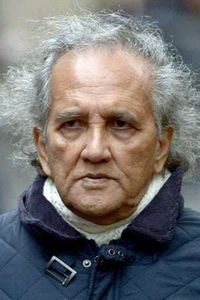Aravindan Balakrishnan, a charismatic and enigmatic figure revered by his devoted followers as "Comrade Bala", embarked on a life journey that would ultimately lead him to become the illustrious leader of a cult-like organization. Born in the picturesque and vibrant state of Kerala, India, Balakrishnan's early life was marked by a series of significant events that would shape his future trajectory.
His father, a soldier, was stationed in the exotic and culturally rich locales of Singapore and Malaya, and it was during this time that the young Balakrishnan would develop a sense of adventure and a desire to explore the world beyond his native India, fostering a deep-seated longing to venture beyond the boundaries of his homeland and immerse himself in the diverse experiences and cultures that lay beyond.
As the years went by, Balakrishnan's innate curiosity and fascination with the theoretical frameworks of Marxism-Leninism-Mao Zedong Thought would gradually intensify, eventually serving as the pivotal motivator behind his decisions and actions.
He would subsequently embark on a journey to establish the Workers' Institute of Marxism-Leninism-Mao Zedong Thought, a cult that would ultimately attract a devoted and unwavering following from numerous individuals.
The organization's central hub would be situated in the bustling metropolis of London, a city that would play a pivotal role in Balakrishnan's activities and serve as the focal point for his various endeavors.
On the twenty-first day of November, two thousand and thirteen, the Metropolitan Police's specialized unit dedicated to combating human trafficking initiated a raid on a residential property located in the Lambeth area of South London.
This operation would ultimately lead to the apprehension of two suspects, comprising a seventy-three-year-old male of Indian ethnicity from Singapore, specifically Aravindan Balakrishnan, and his sixty-seven-year-old wife, Chanda Pattni, who hailed from Tanzania.
The ensuing investigation would focus on allegations of slavery and domestic servitude committed by the couple, thereby setting off a sequence of events that would ultimately shed light on the notorious cult led by Balakrishnan.
As the authorities delved deeper into the matter, the cult's notoriety would continue to grow, sparking widespread interest and concern among the public and the media alike.
Pattni, a Tanzanian-born individual, relocated to the United Kingdom in the early 1970s, setting the stage for a life-changing encounter that would unfold nearly two decades later. Her path would eventually converge with that of Balakrishnan, a shared passion for Marxism-Leninism-Mao Zedong Thought serving as the catalyst for their meeting in the late 1980s. As their connection deepened, the couple would embark on a life-long journey together, with Pattni becoming an indispensable component of the Workers' Institute of Marxism-Leninism-Mao Zedong Thought, a testament to the profound impact she would have on Balakrishnan's life.
Person Biography:
Pattni was born in Tanzania and later moved to the United Kingdom in the early 1970s. She met Balakrishnan in the late 1980s through their shared interest in Marxism-Leninism-Mao Zedong Thought. The couple went on to build a life together, with Pattni becoming an integral part of the Workers' Institute of Marxism-Leninism-Mao Zedong Thought.
As the dust settled on the dramatic arrest of Balakrishnan and Pattni, the once seemingly impregnable facade of the Workers' Institute of Marxism-Leninism-Mao Zedong Thought began to crumble, paving the way for a series of meticulous investigations into the organization's clandestine activities.
The allegations of slavery and domestic servitude, which had long been whispered about in hushed tones, would ultimately prove to be the coup de grâce for the cult, as the very fabric of the organization began to unravel.
As the full extent of the allegations came to light, the once devoted followers of the Workers' Institute of Marxism-Leninism-Mao Zedong Thought began to lose faith, and a mass exodus ensued, leaving the organization a hollow shell of its former self.
In the end, it was the cumulative weight of these allegations, coupled with the relentless pursuit of justice by the authorities, that would ultimately lead to the dismantling of the cult, marking the end of an era and the beginning of a new chapter in the lives of those who had been affected by its nefarious activities.





















